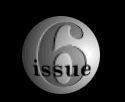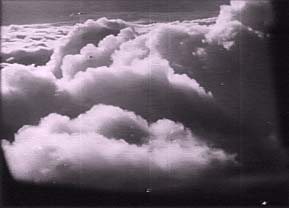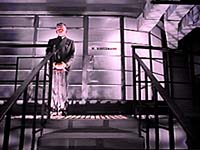
| ||||||
 The cloud-filled opening sequence from Brazil. Modernity in Brazil None of Gilliamís films do a better job critiquing the modern world than his 1985 sci-fi "tragicomedy" Brazil ó the centerpiece of all his films. All of Gilliamís important themes tend to materialize, or at least become evident, in this pivotal work. The optimistic fantasy images versus the pessimistic images of modernity's duality is no exception here. Brazil opens and closes with the same peaceful shot of blue sky and stratospheric clouds.3 These shots are directly related to Samís (Jonathan Pryce) dreams and his desire for a fantasy world away from all the bureaucracy and technology of the "real" world in which he lives. Gilliam uses these tranquil shots to suggest the optimism related to fantasy: there is a chance of escape. However, a keen observer will note that the cloud opening is reminiscent of the beginning of Leni Riefenstahlís Triumph of the Will (1934).4 Due to that filmís connection with Nazism and fascism ó ideological views the bureaucratic state of Brazil seems built on ó the cloud shot becomes problematic. Echoing Riefenstahlís shot (and the subject of her film), the cloud shot in Brazil suggests that even the realm of the imagination is not free from the stifling power of modernity. (The movie's last shot, which shows Sam sitting in a torture chair amidst the clouds, fosters this interpretation: fantasy fails to provide escape). |





